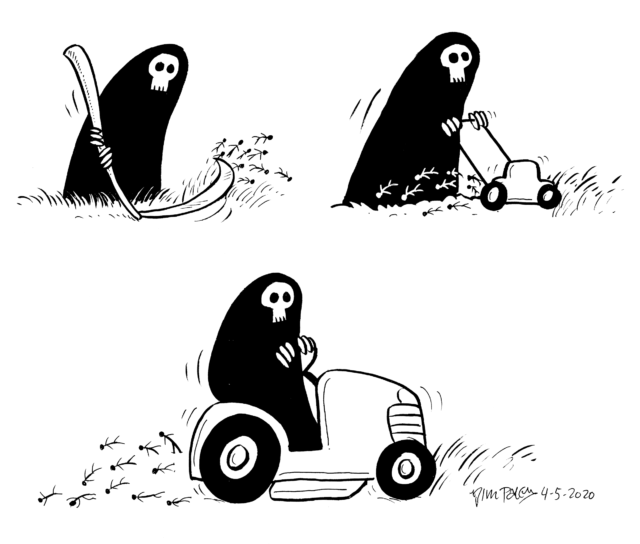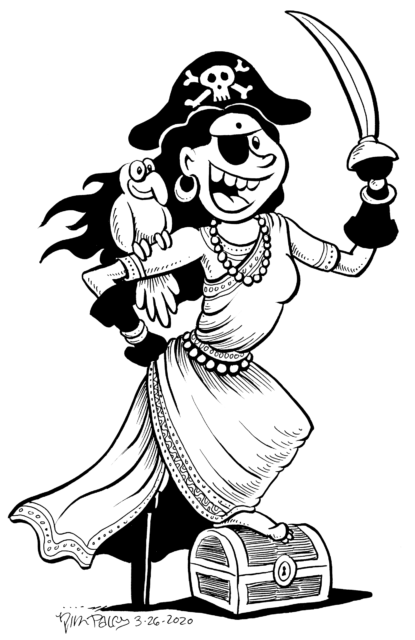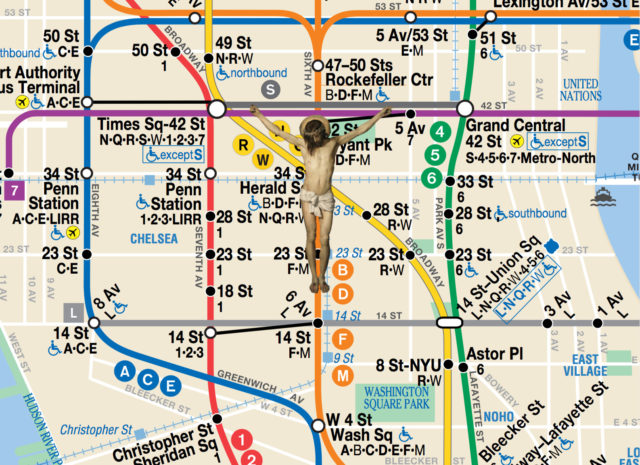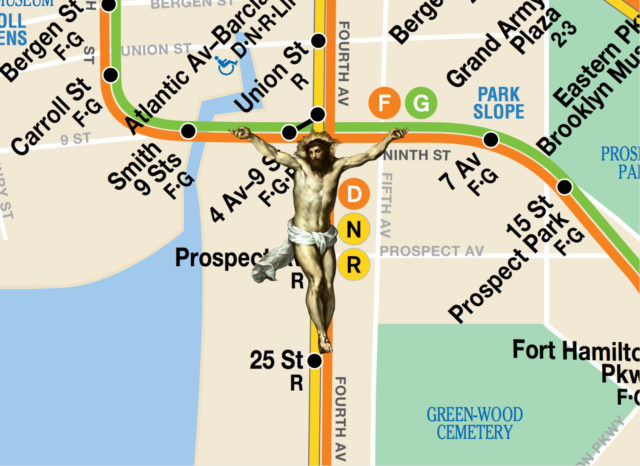I just drew this for myself but it could be a Hundred Dollar Drawing.
The Human Threat
I’m one of those self-unemployed introverts who is adjusting quite well to our pandemic lockdown. I feel especially peaceful because forced quarantine has temporarily quieted many of the garden-variety “alpha” humans, the ones who thrive on dominating others. They have to stay at home too, and haven’t been able to conduct their usual bullying and stirring up trouble. Under “normal” circumstances, they have power over other people, and the other people just aren’t available to lord it over right now.
But that will end. I don’t dread getting sick as much as I dread what the alphas will start doing. Of the lockdown, they warn us, “this is not sustainable!” and “people will start going crazy!” I know they are right. At least half of Americans are expected to get COVID-19 before a vaccine is available (if one ever is) so I’ve made my uneasy peace with that. But human beings have always hurt me more than any disease. Humans have always been the biggest danger to humans. I appreciate that, in this brief moment, the human threat is made visible, and keeping distance is the rule of the day. I sense on the horizon the impending doom of our newfound boundaries being violated by angry, entitled, self-righteous alphas.
They are already abusing whoever is unlucky enough to be quarantined with them. Wife-battering and child abuse is on the rise. (I am immensely grateful I live only with my Momz, an excellent woman of 78.) Their rage and sense of impotence is building, and soon more will leave the confines of their homes to violate others. Then all the “nice” alphas will up their social policing, virtue-signaling, tribe-forming, scapegoating, and witch-hunting in response. The COVID-19 coronavirus is “novel,” but human behavior is not. I have enjoyed my little respite from it.
Answers from a Pandemic
100 years without a pandemic has made us stupid. It’s made me stupid, anyway.
So many questions about human nature that puzzled me, I now see answered. Why are we so tribal? Why does language change so quickly? Why are we so xenophobic – so fearful of people who look different from us even slightly?
Answer: communicable diseases.
The Andaman Islanders had the right idea. They may or may not have known the missionary attempting to evangelize them was full of contagions that could kill them; but they had instincts, and culture, that protected them from infection.
Doesn’t it make sense, evolutionarily, that groups survived that shut out/fought off/killed outsiders? Doesn’t it make sense that language would fracture rapidly, to make ingroups and outgroups develop quickly? The fracturing of humanity protects it from diseases. “Civilization” doesn’t like that, but biology does. And our innate cultural instincts (like language) assisted us biologically.
Deadly communicable diseases are a part of life we’ve been alienated from in the 20th and 21st centuries. Antibiotics especially have transformed the world, allowing human population to explode, and also permitting factory farming on a grotesque scale. We know that antibiotics have a limited life that is ending soon, and our current viral pandemic is just a tiny taste of what’s to come once bacterial diseases return in force. But for over 100 years, we’ve merrily reproduced and exploited without the natural constraint of disease that was a former bedrock of biological reality.
Xenophobia is maladaptive for global civilization, but it’s perfectly adapted for keeping tribal cells of humans hygienically sealed off from each other. “Racism” is only a thing in Civilization, in which humans enslave each other for commerce and power. Without slavery and exploitation, there’s no racism, because there’s nothing pushing diverse groups of humans on top of each other. There’s only “others,” the in-group and the out-groups. The xenophobic aspects of human nature seem appalling in Civilization, but must have worked very well in prehistoric tribal life. Groups were no larger than 150 humans, and most much smaller than that, each with their own dialects, and similar physical traits.
Of course humans would mate outside the tribe, to prevent inbreeding, so curiosity about the “exotic” is another adaptive trait. The exotic is SEXY. Sexy, exploitable, and sadly aiding and abetting racism when repurposed in Civilization. But my understanding is that tribes had very rigid protocols governing permeation through inter-tribal breeding. They were not cosmopolitan. From a biological standpoint, cosmopolitanism = death. But Civilization loves cosmopolitanism: diversity means more markets and an extension of power. Open borders are a boon for global capitalism, but tribal intermarriages were anything but that.





